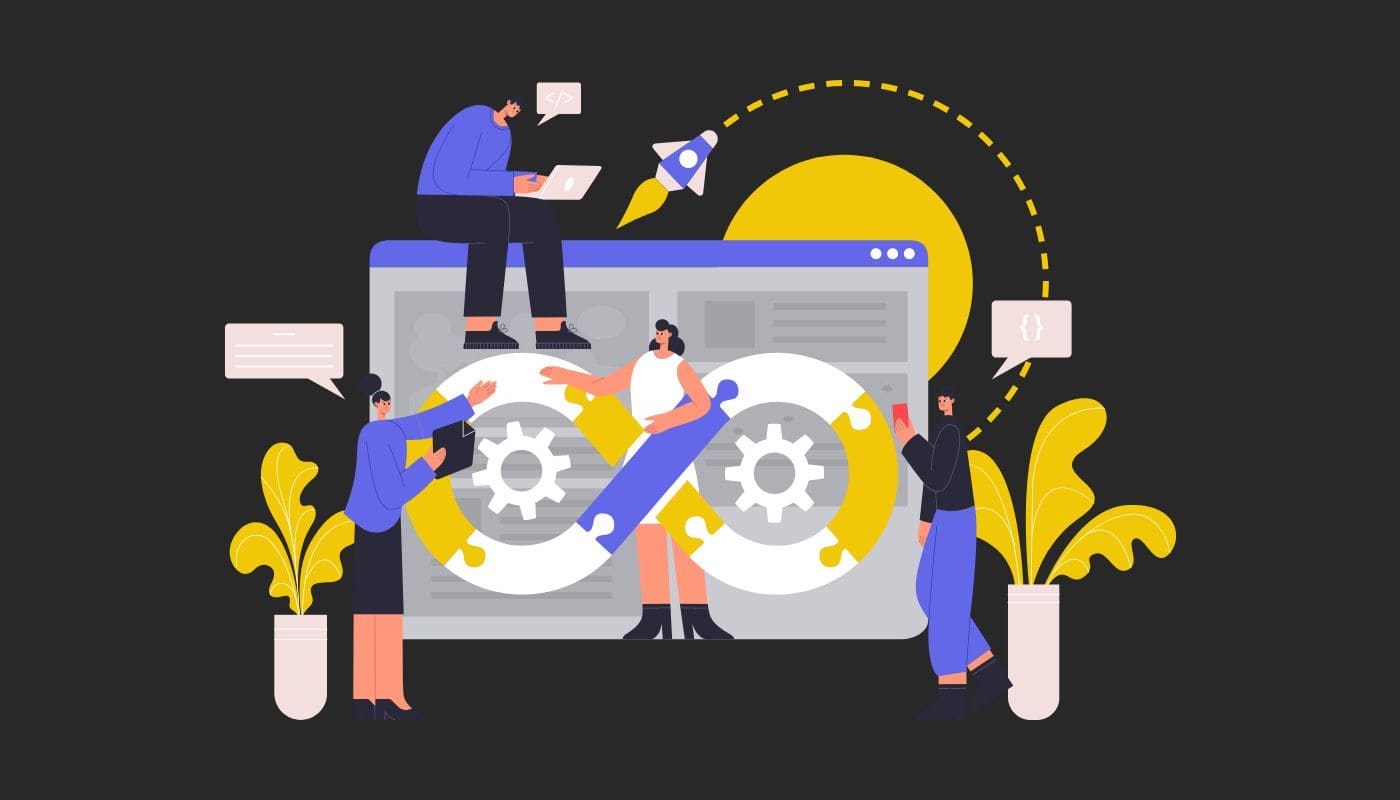Cybersecurity is an ongoing challenge for software and technology companies in an ever-evolving threat landscape. With 18,378 vulnerabilities reported in 2021, NIST recorded the fifth straight year of record numbers and According to a study conducted by Bitdefender, 76% of all applications have at least one vulnerability. In Q1 of 2022, the National Vulnerability Database (NVD) held 8,051 vulnerabilities published which is about a 25 percent increase from the same period the year prior.
By understanding the risks associated with ransomware, social engineering, remote work, supply chain security, cloud security, and vulnerabilities, companies can implement proactive measures to protect their assets, data, and reputation. A comprehensive and dynamic cybersecurity strategy, coupled with a vulnerability and patch management program, are essential to safeguarding the digital assets of software and technology companies.
main challenges for software & tech companies
SUPPLY CHAIN
Software and technology companies are exposed to potential vulnerabilities due to their complex network of suppliers and vendors. To minimise supply chain security risks, they must carefully select vendors, evaluate their security protocols, enforce strict security standards in agreements, and carry out regular security assessments and continuous monitoring of their partners. This multifaceted approach is vital to maintaining the overall security of the company’s ecosystem. Tech companies, as part of the supply chain to larger enterprises, may inadvertently expose their clients to risks through vulnerabilities in software and APIs.
Cloud Security
As cloud adoption increases, ensuring robust cloud security is of utmost importance. Software and technology companies must select trustworthy cloud service providers like AWS or Azure, known for their robust security track records. It is essential for these companies to maintain and ensure their security posture within these environments. Implementing strong access controls, data encryption, and regular security audits are vital to protect sensitive data stored in the cloud. Companies should also develop and test incident response plans specifically for cloud-based services.
VULNERABILITY MANAGEMENT
Software vulnerabilities provide entry points for cyber attackers to exploit. Regular security testing, such as penetration testing and vulnerability assessments, can identify and address potential weaknesses in software and technology systems. Companies should prioritise timely patching of software and promptly address identified vulnerabilities to minimise the risk of exploitation.
RANSOMWARE
Ransomware and malware attacks pose significant risks to software and technology companies. These malicious software threats can lead to data breaches, financial loss, and reputational damage. Companies must implement robust cybersecurity measures to detect and prevent ransomware and malware attacks. Some essential steps include regular software patching, network segmentation, malware scanning, and user education to recognise and report suspicious activities.
Social Engineering
Social engineering tactics exploit human psychology to manipulate employees into divulging confidential information or performing actions that compromise security. Software and technology companies should conduct regular awareness training sessions to educate employees about the various forms of social engineering, such as phishing and pretexting. Implementing strong access controls, multi-factor authentication (MFA), and employee verification protocols can also fortify defenses against social engineering attacks.
REMOTE WORK
The transition to remote work has introduced fresh cybersecurity issues for software and technology firms. Key concerns include the protection of remote access, the assurance of secure data transfer, and the defense of endpoints. To address these challenges, companies need to employ Zero Trust Network Access (ZTNA), utilise encrypted communication paths, and insist on the usage of company-sanctioned devices equipped with the latest security software. The ongoing security of the remote work environment can further be maintained through regular security inspections and the continuous oversight of employee devices to ensure they meet security standards.
We prioritise the following key legislation and guidelines to ensure compliance and mitigate risks:
Compliance with industry standards and regulations is a critical aspect of cybersecurity for software and tech companies. Our cybersecurity solutions address key compliance frameworks such as ISO 27001, NIS2 GDPR, and PCI DSS.
General Data Protection Regulation (GDPR):
GDPR is a comprehensive data protection law that applies to all companies processing personal data of EU citizens, regardless of their location.
ISO 27001: Information Security Management
ISO 27001 is an international standard that outlines the requirements for establishing, implementing, maintaining, and continually improving an Information Security Management.
Payment Card Industry Data Security Standard (PCI DSS):
PCI DSS is a set of security standards designed to protect cardholder data during credit card transactions.
Network and Information Systems Directive 2 (NIS2):
NIS2 is an EU directive aimed at enhancing the cybersecurity and resilience of network and information systems across essential service providers and digital service providers.

How can CommSec Help?
At CommSec, we specialise in strengthening cybersecurity for software and tech companies. Our expert team of professionals understands industry challenges and offers cutting-edge solutions. We safeguard customer data, protect intellectual property, ensure compliance with standards like ISO 27001, GDPR, and PCI DSS, and detect/respond to evolving threats. With our tailored strategies, proactive threat detection, and secure coding practices, we provide peace of mind, allowing you to focus on innovation and growth. Trust us as your partner for a resilient and secure digital future.
- Managed Vulnerability Scanning and Penetration Testing: We conduct regular vulnerability assessments and penetration tests to identify and address security weaknesses in your systems and applications. Our experts simulate real-world attacks to uncover vulnerabilities and provide actionable recommendations to enhance your security posture. Find out more
- Source Code Review: Our team performs in-depth source code reviews to identify potential security vulnerabilities, coding errors, and insecure practices. We help you eliminate security risks at the source code level, ensuring the development of robust and secure software. Find out more
- Compliance Assessments: In addition to ISO 27001, we offer assessments to ensure compliance with other relevant standards and regulations such as GDPR, PCI DSS, and industry-specific requirements. We help you align your cybersecurity practices with the necessary compliance obligations. Find out More
- Security Incident Response: Our team is ready to respond swiftly and effectively in the event of a security incident. We provide incident response planning, incident handling, and post-incident analysis to minimise the impact of cybersecurity breaches and ensure a rapid return to normal operations.
- Supply Chain Vulnerability Management: we provide a solution to assess, score and identify risky vulnerabilities within your supply chain and your vendor’s supply chain. Find out more
- Security Policy and Procedure Development: We help develop and refine security policies and procedures that align with industry best practices. These policies establish clear guidelines for employees, contractors, and stakeholders to follow, ensuring a consistent and secure approach to cybersecurity. Find out more
FAQs
How often are systems and applications tested for vulnerabilities?
We conduct regular vulnerability assessments and penetration testing of your systems and applications to identify potential weaknesses and vulnerabilities. The frequency of these assessments depends on the complexity of your infrastructure, the level of risk, and industry best practices. Our cybersecurity experts will work closely with your teams to establish a testing schedule that aligns with your specific needs.
How is critical customer data being processed and protected?
We employ robust encryption mechanisms, secure data storage, and access controls to protect critical customer data. By implementing strong encryption algorithms and following industry best practices, we ensure that customer data is securely processed, transmitted, and stored within your systems. Our cybersecurity solutions are designed to safeguard customer data at every stage of its lifecycle.
Are suitable controls in place to detect and respond to threats?
Yes, we establish suitable controls to detect and respond to cybersecurity threats effectively. Our solutions include advanced threat detection mechanisms, real-time monitoring systems, and automated incident response processes. By leveraging cutting-edge technologies and industry-proven methodologies, we enable early threat detection, rapid response, and efficient mitigation of cyber threats.
How would service continuity be affected in the event of a breach?
In the event of a cybersecurity breach, we have comprehensive incident response plans in place to minimise the impact on service continuity. Our incident response processes are designed to ensure swift containment, remediation, and recovery. We work closely with your teams to establish resilient backup and disaster recovery mechanisms, ensuring that your services can be quickly restored in the event of a breach.
Is personal data being handled to GDPR standards?
Yes, we understand the importance of complying with the General Data Protection Regulation (GDPR) when handling personal data. Our cybersecurity solutions incorporate privacy by design principles and data protection mechanisms to ensure that personal data is handled in accordance with GDPR requirements. We assist you in implementing appropriate technical and organisational measures to protect personal data and meet GDPR obligations.
Contact us today to learn more about our cybersecurity solutions tailored specifically for software and tech companies. Safeguard your valuable data, protect your intellectual property, and ensure compliance with industry standards and regulations. Trust [Company Name] to be your partner in securing your digital future.
get in touch
WHAT HAPPENS NEXT?
A member of our team will get back to you as soon as possible. They will find a suitable time to speak with you, answer any questions you have and help find the perfect solution to suit your requirements.

